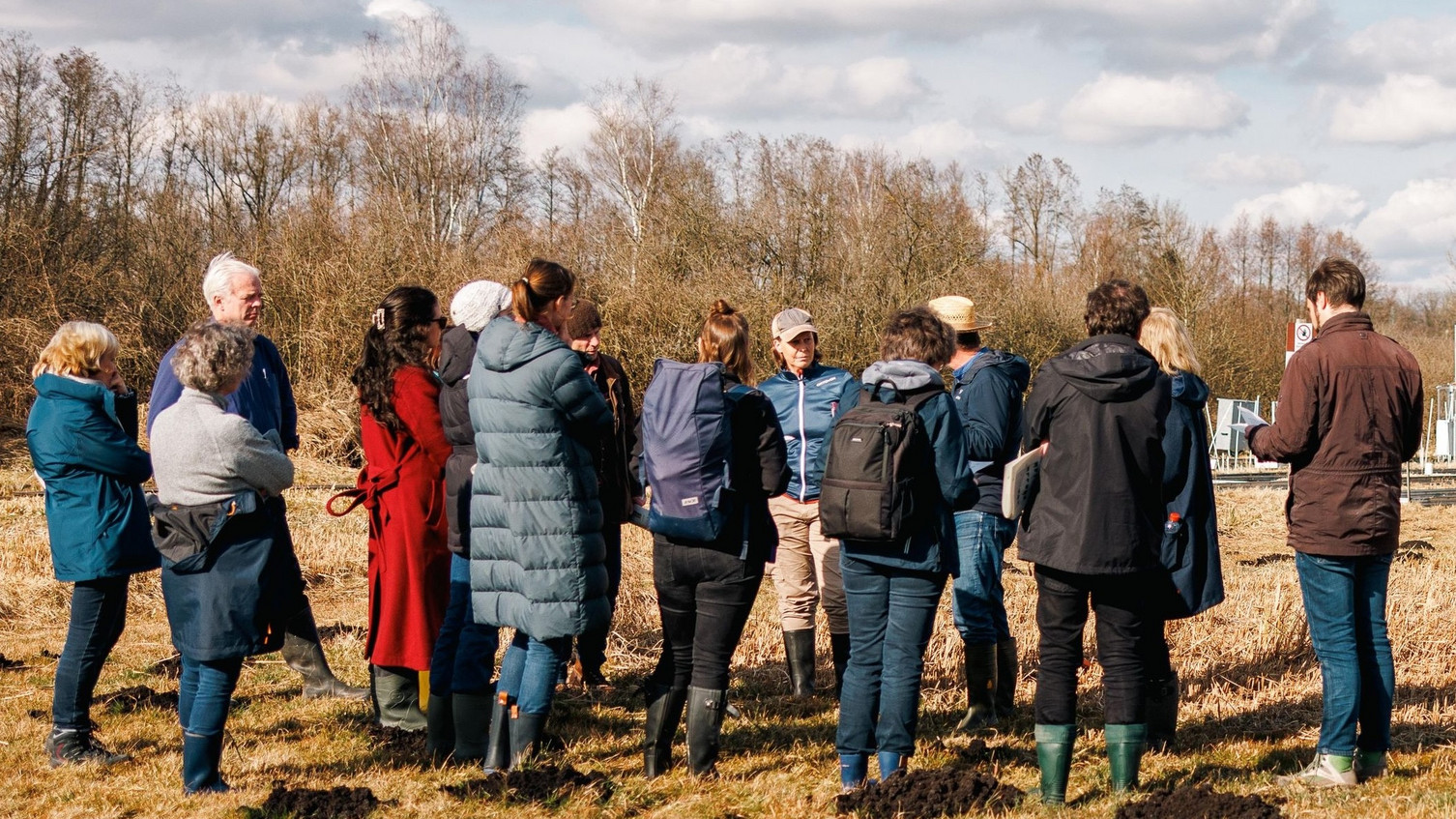Smart Business with Nature for More Climate Protection: Vicky Temperton
Series: “How Does Science Make Its Way into Politics?”
2025-10-01 In the series “How Does Science Make Its Way into Politics?” we introduce researchers from Leuphana who share their expertise in political advisory boards. Prof. Dr. Vicky Temperton has been a member of the Scientific Advisory Board for Natural Climate Protection (WBNK) for one and a half years. The board advises the German federal government, among other topics, on the further development of the Action Program for Natural Climate Protection (ANK).
To most people, meadows, fields, or wetlands may look like nothing more than a collection of grasses and herbs. Yet they hold immense potential for climate protection: wetlands in particular, but also permanent grasslands, can store large amounts of carbon dioxide (CO₂) in the soil. This gas plays a central role in climate change: the more it accumulates in our atmosphere, the faster our planet heats up.
But how can as many natural ecosystems as possible—wetlands, forests, and grasslands—be used effectively for what is known as natural climate protection? This is the question being addressed by the 16 experts of the Scientific Advisory Board for Natural Climate Protection (WBNK). Among them is Prof. Dr. Vicky Temperton of Leuphana. Appointed to the board in March 2024 by then Federal Environment Minister Steffi Lemke, she holds the chair in Ecosystem Functioning & Services.
The WBNK primarily advises the federal government on the further development of the Action Program for Natural Climate Protection (ANK): “At €3.5 billion, it represents the largest single investment in environmental protection since the founding of the Federal Republic of Germany,” says Vicky Temperton about the program, which foresees a range of ecosystem restoration measures from 2024 to 2028.
The measures under the ANK not only protect the climate but also strengthen the adaptability of ecosystems and make them more resilient to the consequences of climate change. The program contributes to biodiversity conservation and helps create resilient landscapes capable of meeting future challenges. “To effectively address the challenges in the land-use sector, the ANK must be continued, implemented more quickly than it has been so far, and above all, expanded further,” Temperton stresses.
“We do not work for the federal government, but with it and with the Federal Ministry for the Environment (BMUV),” emphasizes the Leuphana professor, underlining the independence of the board’s 16 experts. In practice, this means the following: The Action Program for Natural Climate Protection was originally developed by other experts. The current WBNK is tasked with reviewing whether the program can actually be implemented as planned and how it can be meaningfully developed further. In addition, the board formulates responses to pressing political questions. “There is a lot of discussion and even constructive dispute,” Temperton notes about the meetings, which take place every two months, alternating between online and various locations in Germany.
The WBNK also exchanges ideas with the Expert Council on Climate Issues and the Federal Agency for Nature Conservation. In addition, it provides scientific expertise on natural climate protection to federal authorities such as the German Environment Agency (UBA) and maintains close cooperation with institutions such as the Julius Kühn Institute and the Thünen Institute.
The WBNK brings together not only researchers from ecology, like Temperton, but also representatives of other disciplines: environmental law expert Prof. Dr. Wolfgang Köck from Leipzig University, economist Prof. Dr. Katrin Rehdanz from Kiel University, vegetation ecologist Prof. Matthias Drösler from Weihenstephan-Triesdorf University of Applied Sciences in Freising, landscape ecologist Dr. Franziska Tanneberger from the Greifswald Mire Centre, and marine biologist Prof. Dr. Antje Boetius. The former director of the Alfred Wegener Institute (AWI) is now president of the Monterey Bay Aquarium Research Institute (MBARI) in the United States.
“We are working across seven fields of action,” says Temperton. These include wetlands, forests, mineral soils, urban areas, floodplains, seas and coasts, and protected areas. At present, the WBNK is investigating how extreme events—such as more frequent droughts and floods—affect the potential of ecosystems to store carbon. “Here, disturbance-adapted ecosystems, such as species-rich grasslands functioning as multifunctional systems, will in the future be able to provide more than was originally assumed in the Action Program for Natural Climate Protection,” Temperton explains. Discussions within the board, she says, are intense and incredibly stimulating—even for her own research.
Natural climate protection, she emphasizes, is less about prohibitions and more about meaningful changes that ultimately enable farmers and society to derive greater benefit from the land. Temperton puts it this way: “It’s not about stopping economic activity; it’s about working smart.” She adds that policymakers need to create incentives for farmers and NGOs to follow through: “That also means removing bureaucratic hurdles.”
Overall, rapid action is needed to keep the impacts of the climate crisis as minimal as possible. “Despite the many discussions, we therefore work at a high pace within the board,” says Temperton. The Scientific Advisory Board for Natural Climate Protection is initially appointed for three years, on an honorary basis. It is supported by the WBNK secretariat at the Federal Agency for Nature Conservation in Bonn, which organizes the meetings and provides documents. In addition, funds are available so that the WBNK can commission further experts to prepare reports on specific issues.

